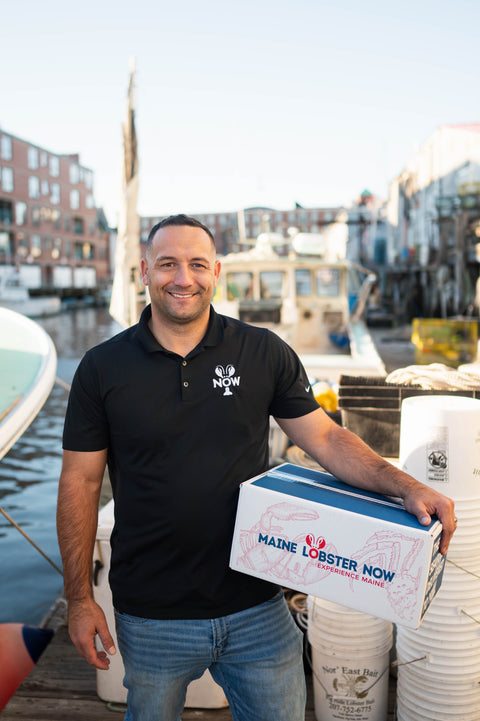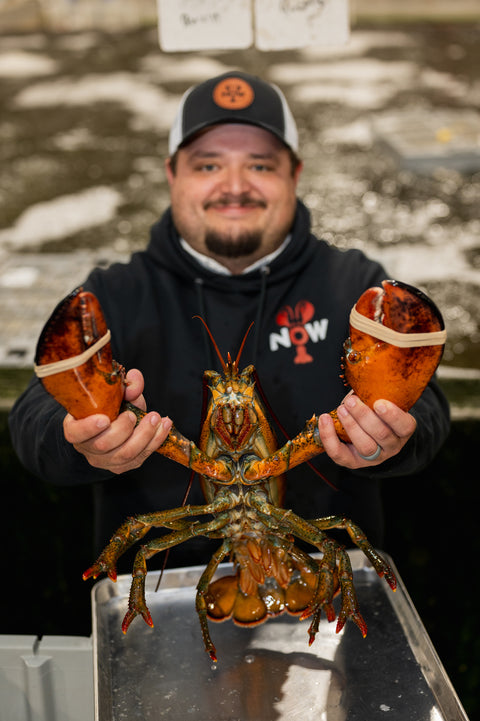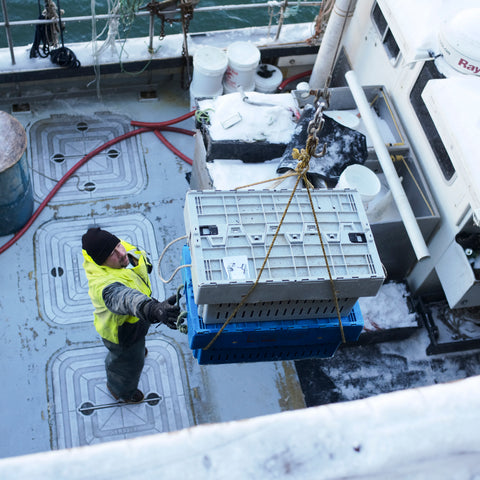About

Our Mission
At Maine Lobster Now, our primary mission is to make fresh seafood accessible to customers across the United States. Situated in Southern Maine, we are deeply committed to fostering enduring partnerships with local fishermen to bolster the regional economy while ensuring we consistently deliver superior products.
Established in 2012 by Julian Klenda, Maine Lobster Now has its roots in Julian's upbringing, where he worked alongside his father in the seafood industry, wholesaling lobster to nearby eateries and markets. Julian's collegiate studies in business illuminated an opportunity to build upon his upbringing, leading to the inception of Maine Lobster Now with the vision of bringing the bounty of the sea to those far from coastal regions.
Since its inception, our company has experienced significant growth. Recognized as a prominent online business in Maine by Google’s Economic Impact Report for 2018, we are poised to further expand our online presence and solidify our position as the foremost destination for fresh seafood.
In alignment with our commitment to supporting the local community in Maine, we prioritize the hiring of individuals grappling with alcoholism and drug addiction. By offering incentives for sobriety and fostering a stable and healthy work environment, we take pride in providing opportunities for personal and professional growth.

Our Facility
The water your lobsters are stored in can make a big difference in the lobsters' taste and overall lifespan. The goal here is to replicate ocean water near the ocean floor. Having a lobster tank is great for lobster quality because sometimes lobsters actually have more energy after getting into a great tank system after a lobsterman has been holding them on their boat. Having a tank is great for purging. In a nutshell, to purge your lobsters is to introduce them to the tank water in a separate container where they will eliminate waste (urinate and defecate).
About Our Lobster Tanks - Better Tanks Means Better Lobsters
- Salt Water - We truck in ocean water so we know the salt content is exactly the same as the ocean. Lobsters would not survive in freshwater.
- Cold Water- We have 'chillers' that keep the water temperature cold. Typically we store lobsters below 40° Fahrenheit. Temperature is critical because as lobsters travel, they are warming up, and if lobsters aren't stored below 40° Fahrenheit, they will not survive for long. Want more info on storing lobsters yourself? Learn how to store live lobsters.
- Aeration of Water - We have a 'bubbler' system with fans that blow air into PVC pipes with holes so there is fresh air 'bubbling' in the tank water. This is critical because it removes carbon dioxide and increases the oxygen saturation of the water.
- Live Nitrifying Bacteria - This is where most people screw up honestly. There is a normal level of various bacteria in the ocean which lobsters need to survive, if there are too much bacteria or not enough, lobsters will not survive. Nitrifying bacteria reduces dangerous ammonia and nitrite, which is harmful to crustaceans.
- Filter Bed - Because we purge our lobsters in our tank, we need to filter the waste. We have a system that cycles out all lobster urinate and defecate to reduce ammonia levels. This keeps the water clean for fresh lobsters coming in needing to purge also. Without a filter bed, ammonia levels will rise and lobster fatality rate will rise also.

Sourcing - Tracing Our Seafood Back To The Docks
We take pride in sourcing all of our seafood locally. We know the area, and we know the people. We buy lobsters directly from fishermen, sort them out, and ship them right to you. All of our staff are Maine residents. This is important because we grew up in the seafood industry, and things that are common knowledge for locals may be unknown to someone new to the area. That's why we think experience matters when you have to decide on where to buy seafood online. Having people that understand the local seafood market make a difference in quality. We know what to look for. We sort through all of our seafood by hand at our quality control center. We have a state of the art lobster holding tank, which ensures your lobster will be in great condition upon arrival.
Do you ever wonder where your food comes from? We do too! Being able to trace your meal back to its origin is a huge part of eating healthy and having confidence in your meal. We only eat local farm-fresh foods, and so that is all we sell. We avoid processed foods, GMOs, and animals that are raised in an inhumane environment at all costs. Pesticides and preservatives are something we avoid at all costs. We want you to know how important your food is to us. Every item we sell can be traced back to the lobstermen and/or harvest area.
Us vs Other Online Companies
What you may want to learn about is our "competition", most of these companies are not in Maine. They may say they are from Maine or in Maine, but most are marketing companies from Chicago. One competitor is actually located in Rhode Island and still advertises a Maine lobster! Don't be fooled by a fancy website!




